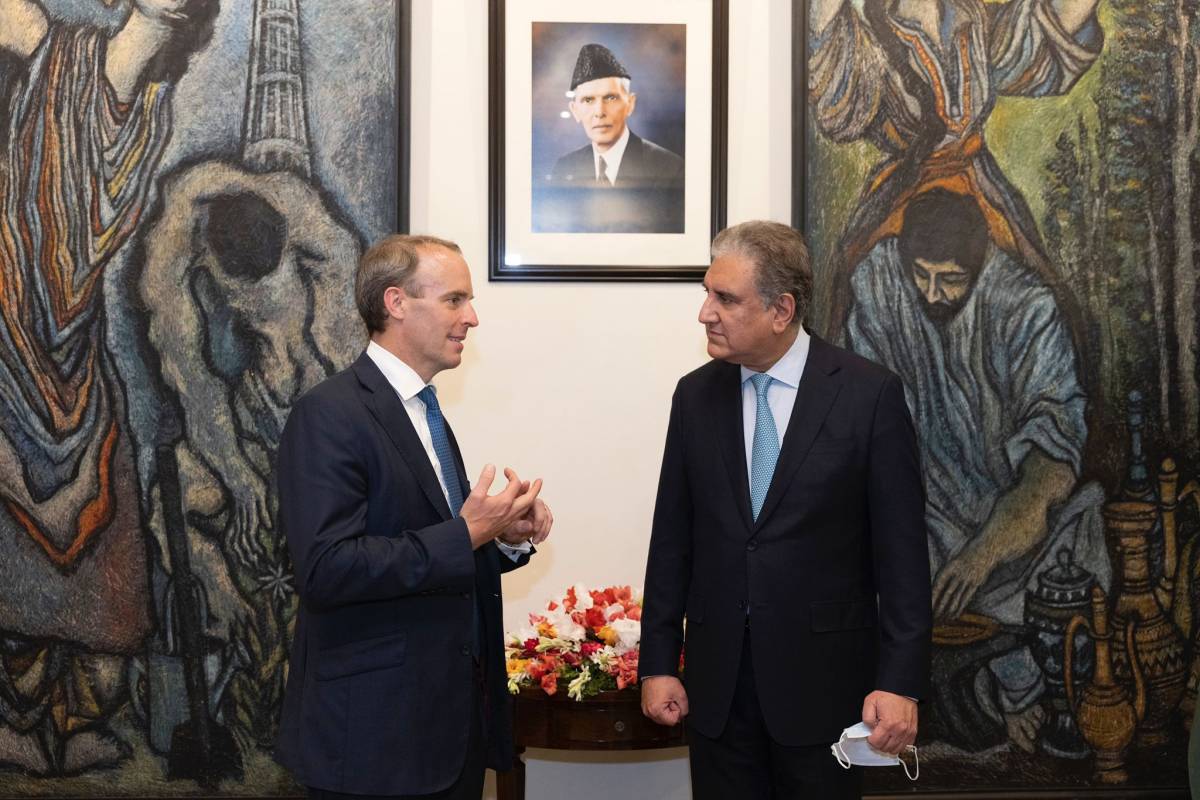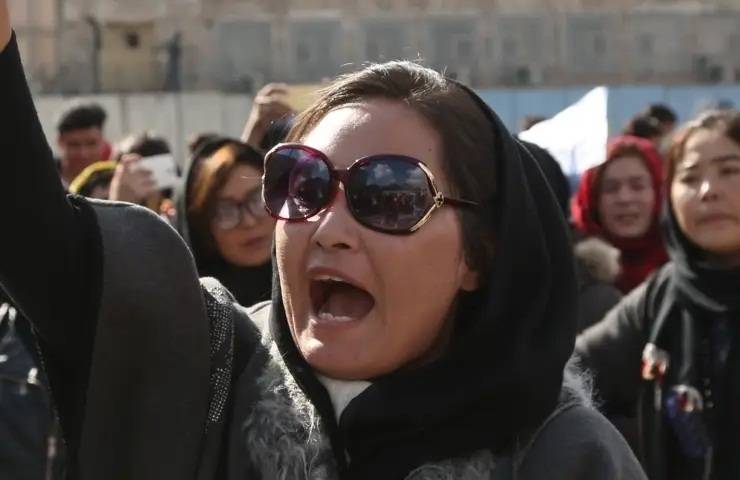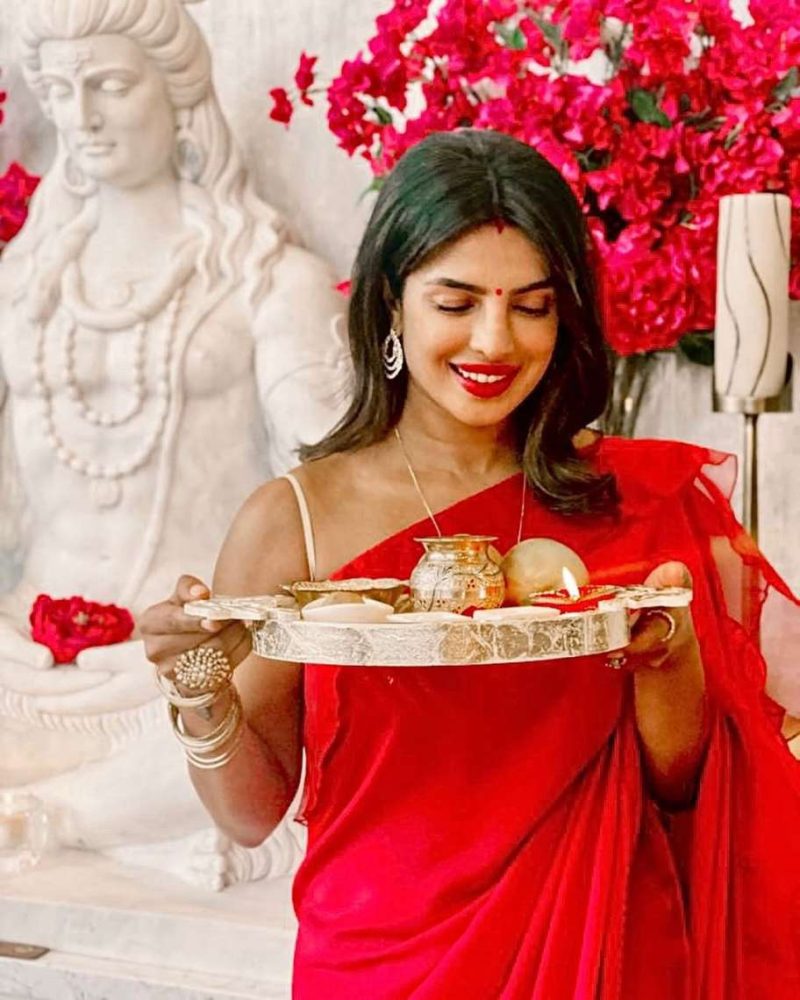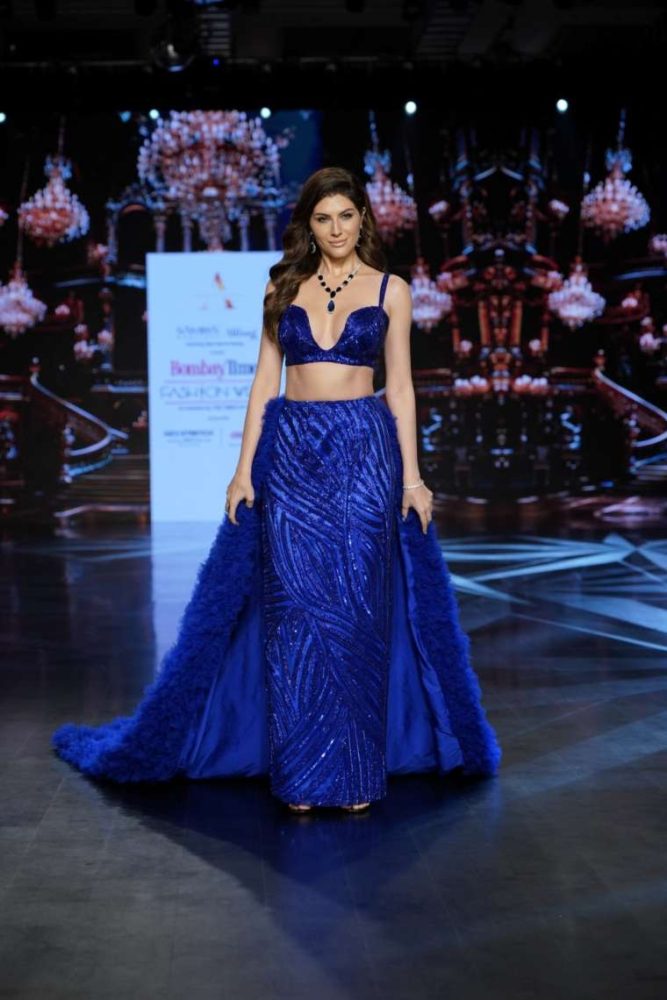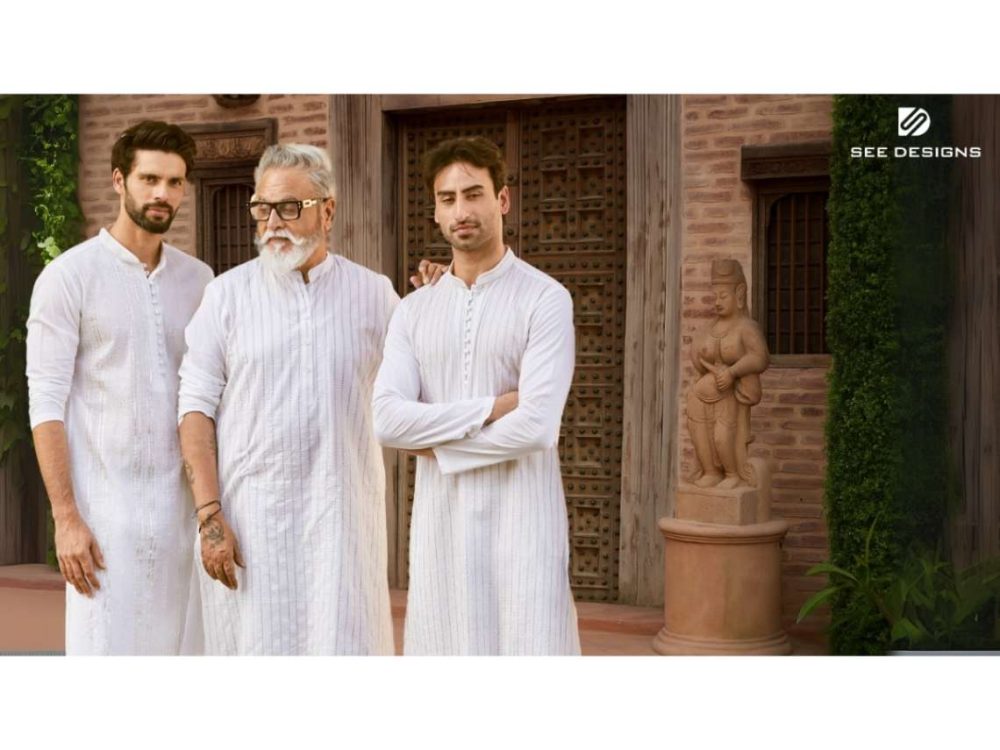There are very few Indian designers who really fall into these categories, Day 6 was a treat because all three showcases captured couture and haute couture in its true sense…reports Tanya Banon.
Fashion is always a signature of the period.Couture in India is a fairly loosely used term, usually in reference with “shaadi” fashion or bridal wear. What couture actually means is “the design and manufacture of fashionable clothes to a client’s specific requirements and measurements”, and so “fashionable clothes” is the operative term largely forgotten in the Indian context.
Haute Couture on the other hand “is a protected name that may not be used except by firms that meet certain well-defined standards”. Which goes to say that it refers to “fashionable clothes produced by leading fashion houses”, “constructed by hand from start to finish, made from high-quality, expensive, often unusual fabric and sewn with extreme attention to detail and finished by the most experienced and capable of sewers –often using time-consuming, hand-executed techniques.[1][2]
Produced by a few of India’s leading designers, the clothes were fashionable, high quality, sewn with extreme attention to detail, hand crafted by the most experienced and capable sewers with time consuming techniques. Albeit they may be expensive, but competitively priced compared to international artisanal creations.
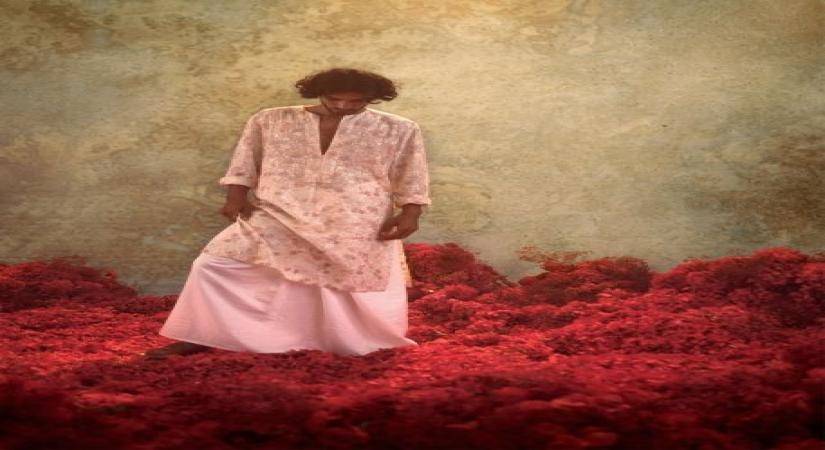
Rohit Gandhi + Rahul Khanna began a new chapter with this Couture line. The dresses, as if immersed in gleaming crystals were a profusion of opulence with embellished rich fabrics like velvet, duchesse satin, and chiffon in a harmonious palette of wine, grey, sapphire, and with mostly tonal arabesques or floral embroideries. For gentleman, sharp tuxedos detailed with embroideries and made with heritage techniques were tailored in modern luxury silhouettes.
Of their collection the designers stated, “We have worked on a couture collection for the first time. We specialize in textural surface ornamentation and our hand embroideries are all based on old Indian crafts. So, it was a very natural transition to infuse our hand-done techniques on couture ensembles. The modern Indian bride and the groom were looking for something unusual, which is global yet traditional. We believe our collection with its emphasis on sculpted silhouettes softened with sensual shimmer is apt for the modern bride and groom who are breaking conventions by trying unusual silhouettes for their big day.”
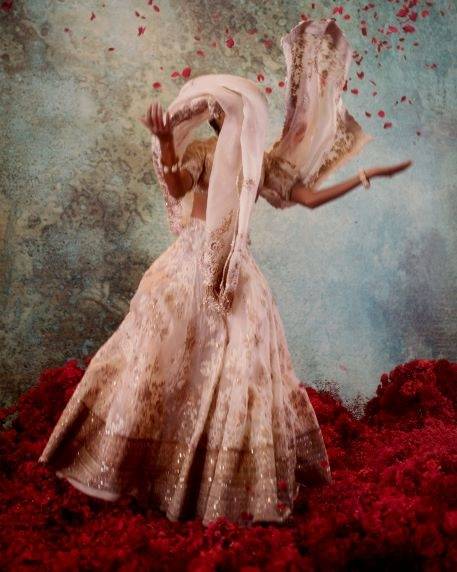
Couturier Tarun Tahiliani’s ‘Artisanal Couture’ collection featured a stunning set of six discrete capsule collections, each of which showcases his signature ‘India Modern’ design aesthetic. Featuring Chikankari, Pichwai, Rangrez, Cocktail Goddess, Pakeezagi and Bridal capsules, each showcase presented unique techniques, stories and designs that appeal to the label’s loyal and dedicated clientele.
In a career spanning over 25 years, Tahiliani has always focused on exquisite hand-craftsmanship and contemporary silhouettes, where Indian techniques, embroideries and textiles are used in modern ways. Aimed to provide relevant design work to the craftsmen that he works with, through his creations the designer hopes to keep the artisan’s stories, livelihood and Indian culture alive.
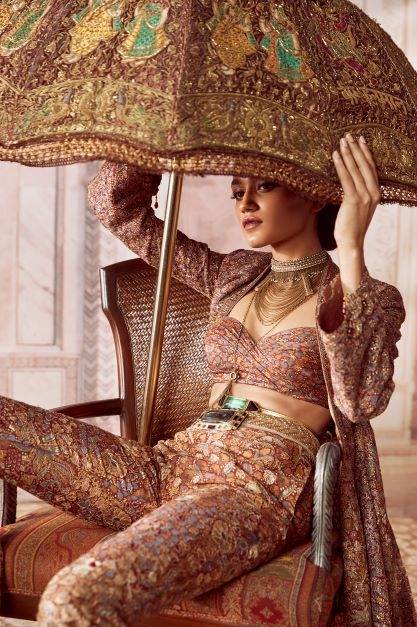
Celebrity favourite designer, Anamika Khanna’s collection was an emotion, a rejoicing of beauty, wonder and surrender. An ode to celebrate and accept what is and what is given, in homage to the most intricate crafts of India. To get inspired and internalize the spirit of what was and what will be for eternity. Festive and joyful, Khanna’s collection honoured the human spirit, “stars masquerading as humans”, shining bright. Heavily embroidered and embellished lehengas, kurtas and skirts in flowing silhouettes for women and modern interpretations of traditional styles for men dominated the collection.
ALSO READ-Crafting the future
READ MORE-Geopolitical implications of Taliban win for India



